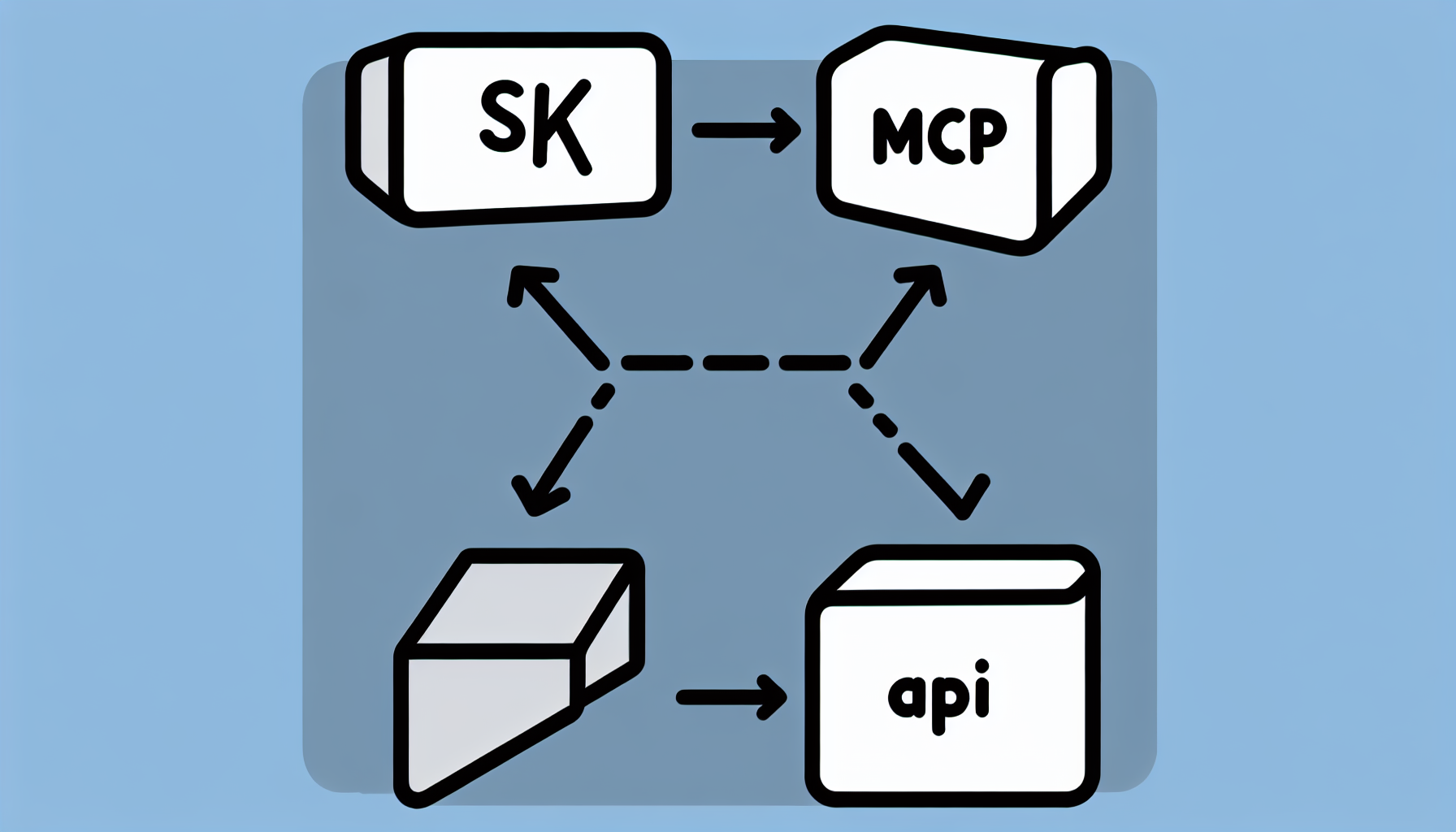Semantic Kernel
The latest news from the Semantic Kernel team for developers
Latest posts

Guest Blog: Bridging Business and Technology: Transforming Natural Language Queries into SQL with Semantic Kernel Part 2
Today we'd like to welcome back a team of internal Microsoft employees for part 2 of their guest blog series focused on Bridging Business and Technology: Transforming Natural Language Queries into SQL with Semantic Kernel. We'll turn it over to our authors - Samer El Housseini, Riccardo Chiodaroli, Daniel Labbe, Fabrizio Ruocco and Angel Sevillano Cabrera to dive in. Introduction In today's data-driven business landscape, access to information is critical for decision-making. However, a persistent challenge has been the technical barrier between business users who need data insights and the complex database sys...

Guest Blog: Revolutionize Business Automation with AI: A Guide to Microsoft’s Semantic Kernel Process Framework
Revolutionize Business Automation with AI: A Guide to Microsoft’s Semantic Kernel Process Framework Step-by-Step guide on creating your first process with AI Microsoft’s AI Framework, Semantic Kernel, is an easy-to-use C#, Java, and Python-based AI framework that helps you quickly build AI solutions or integrate AI capabilities into your existing app. Semantic Kernel provides various ways to integrate the power of LLM into your application. The two core sub-frameworks that Semantic Kernel offers are Agent-based and Process-based. In my previous blogs I have shared steps to create agents with Semantic Kernel’...

Announcing Hybrid Search with Semantic Kernel for .NET
Today we’re thrilled to announce support for Hybrid search with Semantic Kernel Vector Stores for .NET. What is Hybrid Search? Hybrid search performs two parallel searches on a vector database. The union of the results of these two searches are then returned to callers with a combined rank, based on the rankings from each of the constituent searches. The two searches typically consist of 1. a vector similarity search and 2. a keyword search over the source text of the vector from search 1. Using hybrid search typically results in much better RAG performance than just using regular vector similarity search....

Guest Blog: A Comprehensive Guide to Agentic AI with Semantic Kernel
Today we're excited to welcome Arafat Tehsin, who’s a Microsoft Most Valuable Professional (MVP) for AI. back as a guest author on the Semantic Kernel blog today to cover his work on a Comprehensive Guide to Agentic AI with Semantic Kernel. We'll turn it over to Arafat to dive in further. The world of AI is evolving rapidly and just two weeks back, the Semantic Kernel team rolled out several significant improvements to their Agent Framework for both .NET and Python SDKs. These updates pave the way for more dynamic and flexible applications across various industries. Therefore, I decided to come up with a compr...

Python Vector Store Connectors update: Faiss, Azure SQL Server and Pinecone
Announcing New Vector Stores: Faiss, SQL Server, and Pinecone We are thrilled to announce the availability of three new Vector Stores and Vector Store Record Collections: Faiss, SQL Server, and Pinecone. These new connectors will enable you to store and retrieve vector data efficiently, making it easier to work with your own data and data models. Faiss Faiss is a library for efficient similarity search and clustering of dense vectors. It builds on the built-in InMemoryCollection, by creating Faiss indexes on the side, which are then used for the actual vector search. Setup Install Semantic Kernel with ...

Guest Blog: Semantic Kernel and Copilot Studio Usage Series – Part 1
Today on the Semantic Kernel blog we're excited to welcome a group of guest authors from Microsoft. We'll turn it over to Riccardo Chiodaroli, Samer El Housseini, Daniel Labbe and Fabrizio Ruocco to dive into their use cases with Semantic Kernel and Copilot Studio. In today's fast-paced digital economy, intelligent automation is no longer optional—it's an essential capability for organizations striving to remain competitive and agile. Modern business success depends not merely on adopting advanced technologies, but on seamlessly integrating them into existing operations to enhance productivity, improve custo...

Semantic Kernel Agents are now Generally Available
The time is finally here, Semantic Kernel’s Agent framework is now Generally Available! Available today as part of Semantic Kernel 1.45 (.NET) and 1.27 (Python), the Semantic Kernel Agent framework makes it easier for agents to coordinate and dramatically reduces the code developers need to write to build amazing AI applications. What does Generally Available mean? When we mark an API as Generally Available it means that we have high confidence in the quality of the surface for building AI applications and that we can support and maintain the API going forward. We know that a stable and supported API is import...

Using OpenAI’s Audio-Preview Model with Semantic Kernel
OpenAI's gpt-4o-audio-preview is a powerful multimodal model that enables audio input and output capabilities, allowing developers to create more natural and accessible AI interactions. This model supports both speech-to-text and text-to-speech functionalities in a single API call through the Chat Completions API, making it suitable for building voice-enabled applications where turn-based interactions are appropriate. In this post, we'll explore how to use the audio-preview model with Semantic Kernel in both C# and Python to create voice-enabled AI applications. Best Use Cases Best for turn-based interaction...

Building a Model Context Protocol Server with Semantic Kernel
This is second MCP related blog post that is part of a series of blog posts that will cover how to use Semantic Kernel (SK) with the Model Context Protocol (MCP). This blog post demonstrates how to build an MCP server using MCP C# SDK and SK, expose SK plugins as MCP tools and call the tools from client side via SK. Here are a few reasons why you might want to build an MCP server with SK: For more information about MCP, please refer to the documentation. The sample described below uses the official ModelContextProtocol nuget package. Its runnable source code is available in the Semantic...
